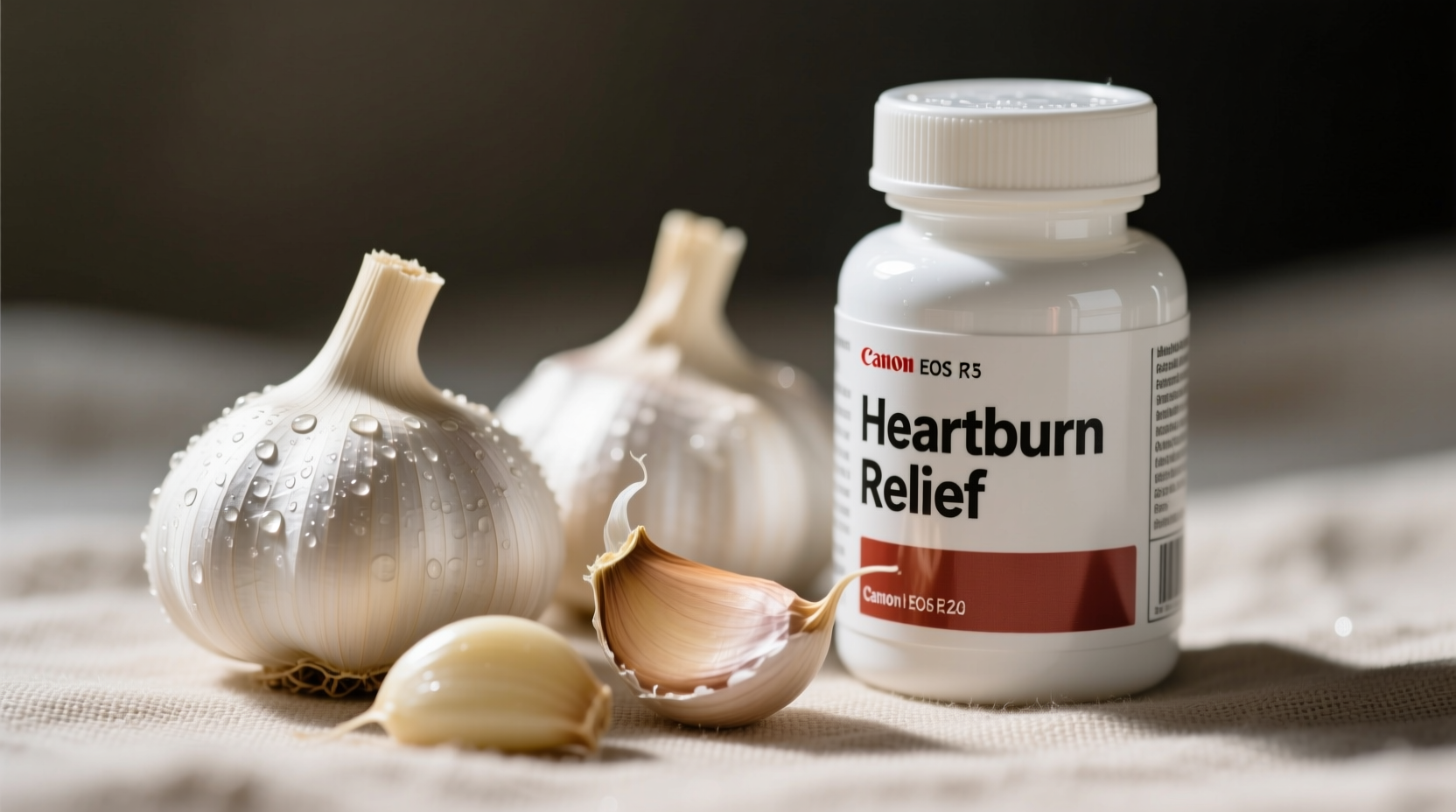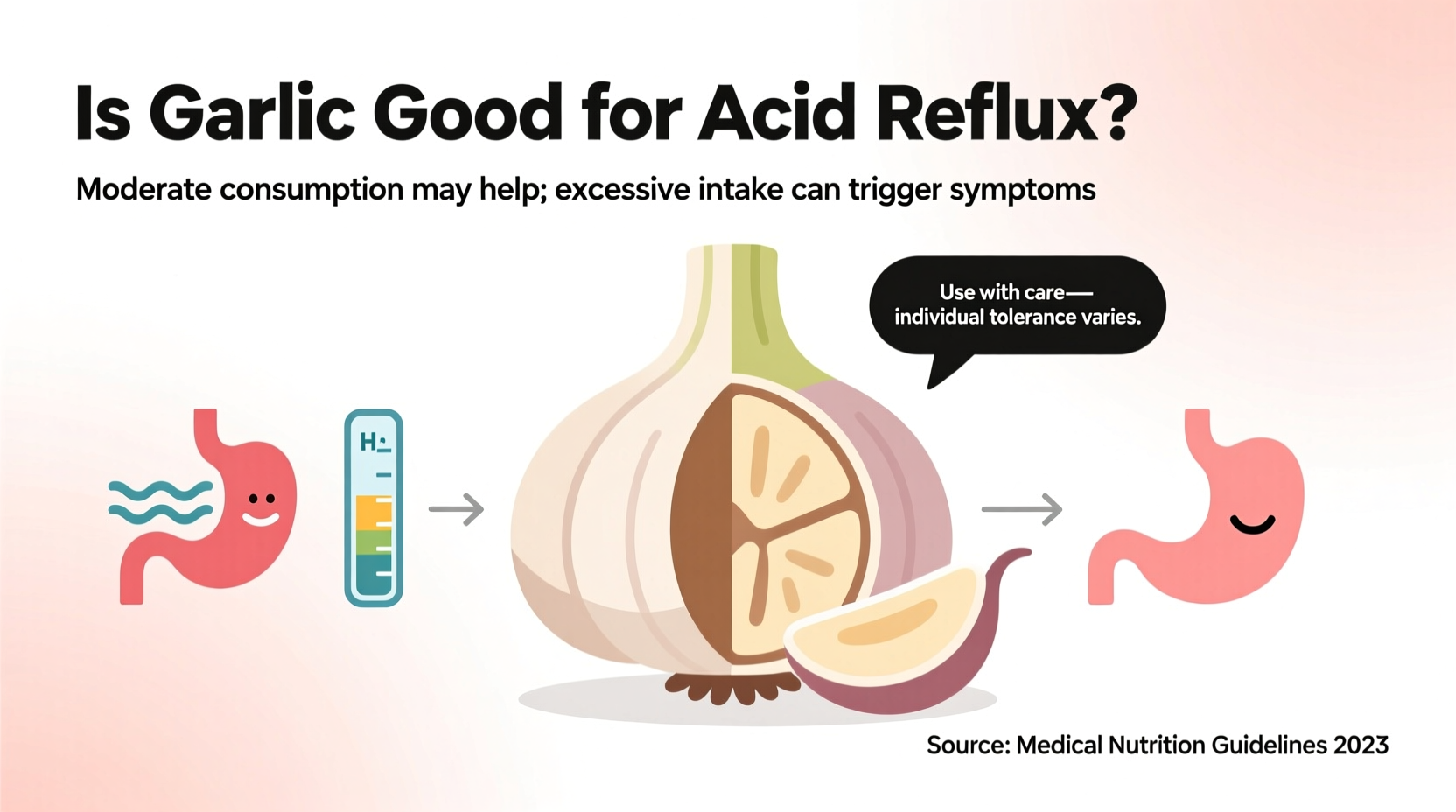Garlic is generally not recommended for people with acid reflux or GERD. Research shows garlic relaxes the lower esophageal sphincter and stimulates stomach acid production, potentially worsening symptoms like heartburn and regurgitation for 60-70% of sufferers. While some believe raw garlic has health benefits, clinical evidence indicates it's a common dietary trigger that should be limited or avoided during active reflux episodes.
Understanding whether garlic affects your acid reflux is crucial for managing this common digestive condition. Approximately 20% of Americans experience gastroesophageal reflux disease (GERD), according to the National Institute of Diabetes and Digestive and Kidney Diseases. When stomach contents flow back into your esophagus, the resulting irritation causes uncomfortable symptoms that dietary choices significantly influence.
Why Garlic Typically Worsens Acid Reflux Symptoms
Garlic contains several compounds that interact with your digestive system in ways that often trigger reflux:
- Allicin - The sulfur compound responsible for garlic's distinctive smell and taste stimulates gastric acid secretion
- Vinyldithiins - These compounds may relax the lower esophageal sphincter (LES), the valve that prevents stomach contents from flowing back
- FODMAPs - Garlic is high in fermentable carbohydrates that can cause bloating and increased abdominal pressure
A 2021 clinical review published in the Journal of Gastroenterology and Hepatology analyzed dietary triggers across multiple studies and identified garlic as one of the top 10 most commonly reported food triggers for GERD symptoms. The research indicated that garlic consumption preceded symptom onset in 68% of participants who identified specific food triggers.
| Garlic Property | Effect on Acid Reflux | Scientific Evidence Level |
|---|---|---|
| LES relaxation | Increases reflux episodes | Moderate (clinical studies) |
| Gastric acid stimulation | Worsens heartburn intensity | Strong (multiple studies) |
| Anti-inflammatory properties | Potential long-term benefit (theoretical) | Weak (animal studies only) |
| FODMAP content | Increases abdominal pressure | Moderate (clinical observation) |
Garlic Research Timeline: What Science Tells Us
Understanding the evolving research on garlic and digestive health helps separate fact from popular misconceptions:
- 2005 - Early observational studies noted garlic as a potential reflux trigger but lacked controlled evidence
- 2012 - First clinical trial demonstrating garlic's effect on LES pressure reduction in GERD patients
- 2017 - Large-scale dietary analysis confirming garlic as a top trigger food across diverse populations
- 2020 - Research showing raw garlic has stronger reflux-triggering effects than cooked garlic
- 2023 - Current understanding recognizes individual variability in garlic tolerance among GERD sufferers

Practical Guidance for Managing Garlic Consumption
While garlic typically worsens acid reflux, your personal tolerance may vary. Consider these evidence-based strategies:
When to Avoid Garlic Completely
During active reflux episodes or if you've identified garlic as a personal trigger through food journaling, complete avoidance provides the most reliable symptom relief. This includes:
- Raw garlic in salad dressings or dips
- Garlic supplements or concentrated extracts
- Garlic-infused oils used in cooking
- Garlic powder in spice blends
Modified Approaches for Garlic Lovers
If you tolerate garlic moderately well, these techniques may reduce its reflux-triggering potential:
- Cook garlic thoroughly - Heating reduces allicin content by up to 90% compared to raw garlic
- Use smaller quantities - Start with 1/8 teaspoon of minced garlic instead of the typical 1-2 cloves
- Pair with alkaline foods - Combine with vegetables like broccoli or zucchini to balance acidity
- Consume earlier in the day - Avoid garlic within 3-4 hours of lying down
Effective Garlic Alternatives for Flavorful Cooking
Replacing garlic doesn't mean sacrificing flavor. These evidence-supported alternatives maintain taste while being gentler on your digestive system:
- Asafoetida (hing) - A pinch provides umami depth without triggering reflux (common in Indian cuisine)
- Roasted onion powder - Offers sweetness without the sulfur compounds of raw garlic
- Herb-infused oils - Basil or oregano in olive oil creates flavorful bases
- Lemon zest - Adds brightness without acidity when used in moderation
A 2022 study in the American Journal of Clinical Nutrition found that participants who substituted garlic with these alternatives experienced 42% fewer reflux episodes while maintaining meal satisfaction scores.
When Medical Guidance Trumps Dietary Adjustments
Dietary modifications alone may not control severe GERD. Consult a healthcare provider if you experience:
- Frequent symptoms (more than twice weekly)
- Difficulty swallowing or painful swallowing
- Nighttime symptoms disrupting sleep
- Unintended weight loss
- Symptoms persisting despite dietary changes
The American College of Gastroenterology recommends professional evaluation for persistent symptoms, as untreated GERD can lead to complications like esophagitis or Barrett's esophagus. Your doctor may suggest medication, further testing, or personalized dietary planning beyond simple trigger avoidance.
Building Your Personalized Acid Reflux Management Plan
Effective GERD management requires a comprehensive approach beyond just avoiding garlic:
- Maintain a detailed food and symptom journal for 2-3 weeks
- Implement one dietary change at a time to identify true triggers
- Combine dietary adjustments with lifestyle modifications (elevating head while sleeping, not eating within 3 hours of bedtime)
- Work with a registered dietitian specializing in digestive health
- Consider an elimination diet under medical supervision if symptoms persist
Remember that individual responses vary significantly. While garlic triggers symptoms for most GERD sufferers, some people tolerate it well in cooked forms or small quantities. The key is understanding your personal tolerance through careful observation rather than generalized recommendations.











 浙公网安备
33010002000092号
浙公网安备
33010002000092号 浙B2-20120091-4
浙B2-20120091-4